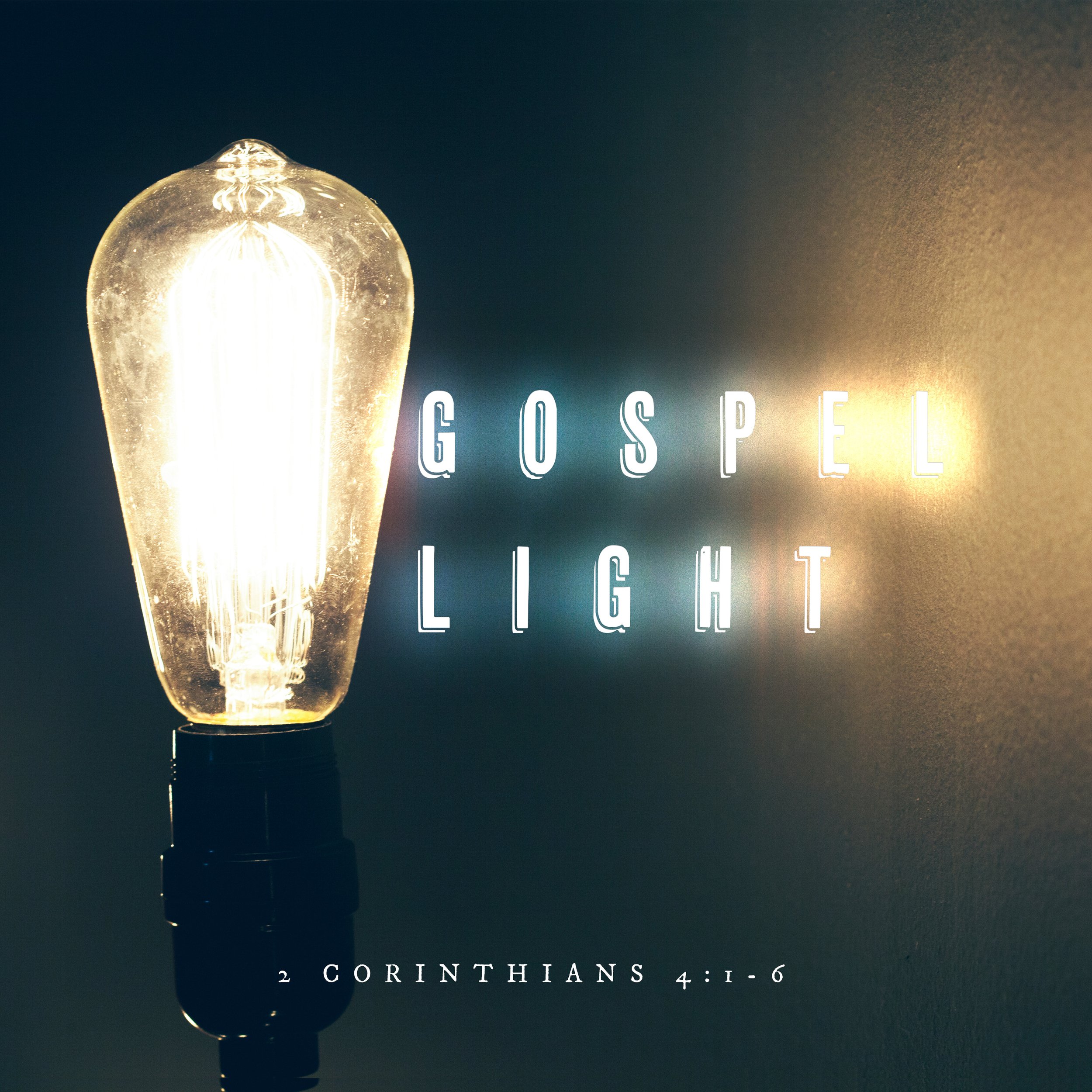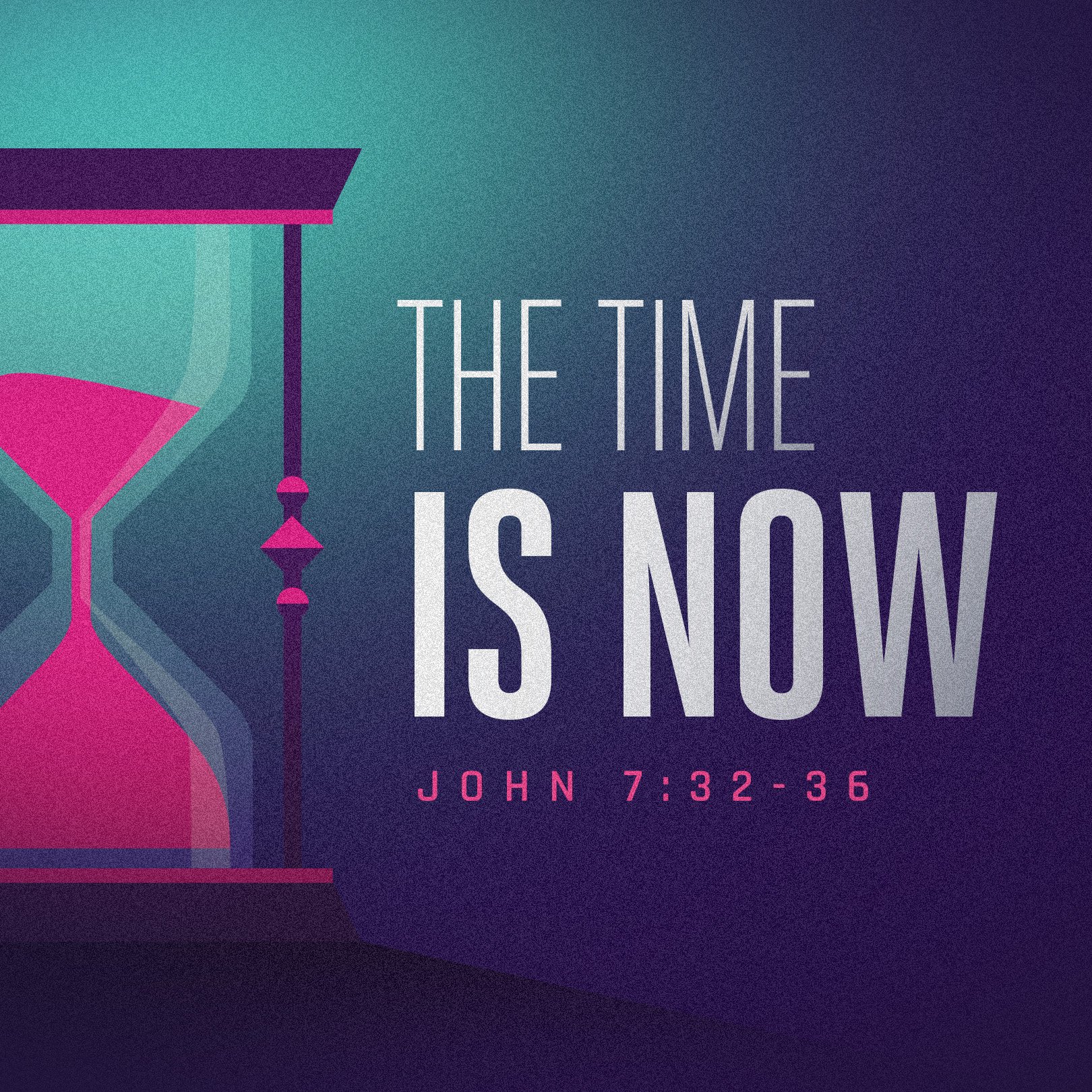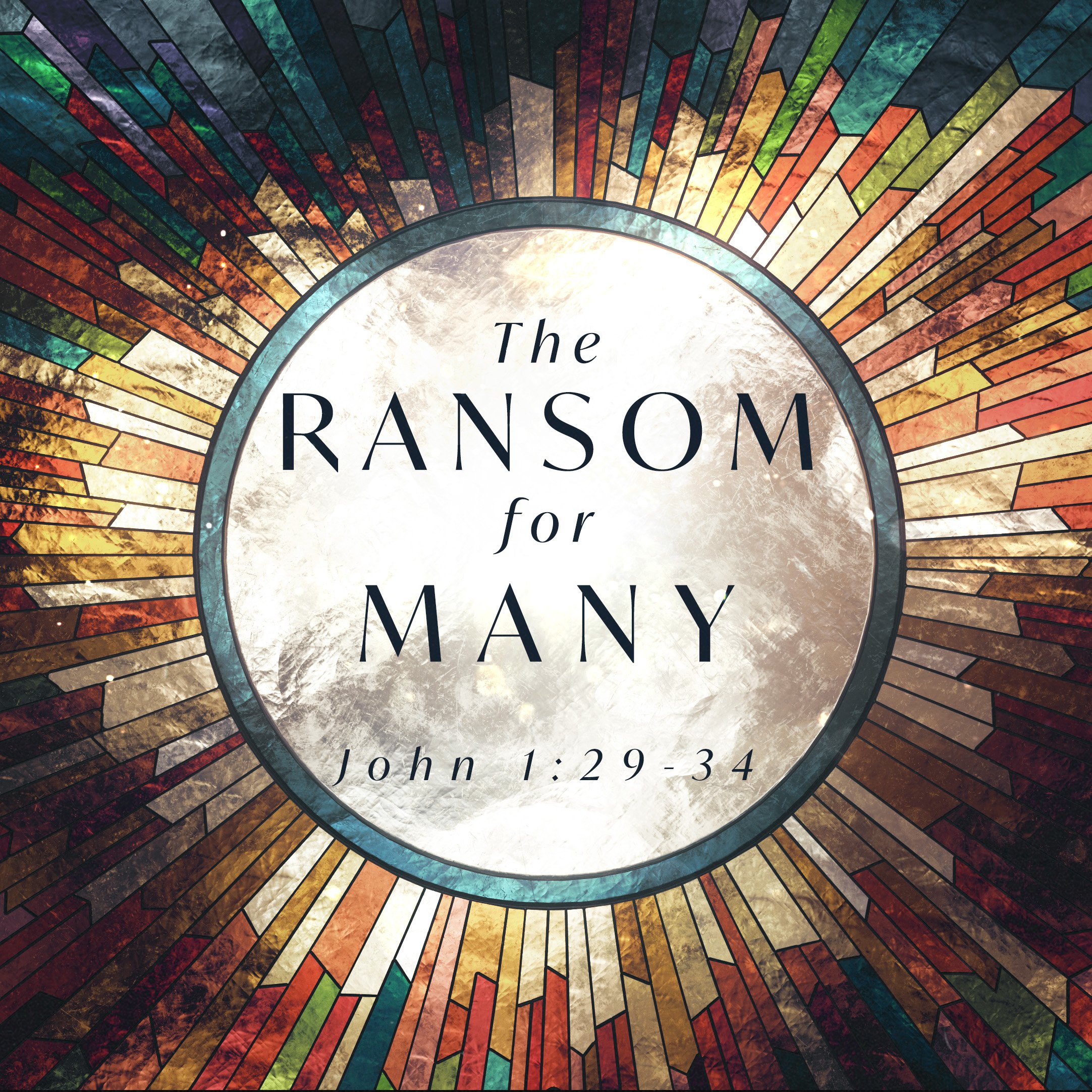All for the Kingdom
Sermon Podcast
Gospel Light, 2 Corinthians 4:1-6
Paul knew something about the blindness of sin and the brilliance of the gospel light. He was given the name of Saul at birth, and from his earliest years, he was devoted to keeping the law.
The first introduction we have to Saul in scripture comes in Acts 7 at the stoning of Stephen. As Stephen was stoned to death, Saul watched over the coats of the men who threw the stones. (Acts 7:58) The next chapter describes how Saul became an enthusiastic persecutor of the early Christians (Acts 8:3).
As Saul grew in notoriety for his persecution, he asked the high priest for the authority to arrest Christians and bring them to Jerusalem. After receiving this authority, he made his way to Damascus, but before he arrived, he was confronted by a light from heaven.
Saul’s physical blindness would result in spiritual sight. (Acts 9) God would send a Christian named Ananias to Saul to pray for him. Once God removed the veil of blindness from Saul, God changed his name to Paul.
Paul knew what it was to be blinded to the truth. Paul knew what it was to be blinded to who Jesus is. And Paul knew what it was to see the gospel light. In Corinthians 4, he teaches on the transformation of the gospel, the opposing work of Satan, and the truth that only God can shine the light of knowledge that reveals His glory through Jesus.
Jesus is Greater, 2 Corinthians 3
In 2 Corinthians 3, Paul references the events recorded in Exodus 19-34. He compares the glory of the law with the glory of the new covenant and salvation in Jesus Christ.
You may ask, "what relevance does the law of Moses have today?" You may wonder what connection the events of the Israelites near Mt. Sinai have with you today. The relevance and connection are that all who are outside of the redemption of Jesus Christ still rely on the law of Moses. Under the law, you are attempting to be a good person through your own effort.
Even if you claim to be an atheist or, in some other way, totally disinterested in Christianity, you have some standard of goodness. You have some version of a moral code. You have a paradigm for what makes a person good or bad. These standards and codes are forms of law.
Acceptance by God requires perfection under the law or redemption by the perfect blood of Jesus.
In comparison to the law of Moses, Paul makes clear that the gospel of Jesus Christ and the new covenant purchased by His blood is better than, greater than, and more glorious than anything the old covenant could bring, glorious as it may have been.
From 2 Corinthians 3, we see three ways the new covenant is better than, greater than, and more glorious than the old covenant of the law:
Jesus provides true evidence of salvation.
Jesus is more glorious than the law.
Jesus makes you holy before the Father.
Fragrance of Life and Death, 2 Corinthians 2:12-17
The imagery that Paul references in 2 Corinthians 2:12-17 is of a Roman General’s victory parade. When the victorious general returned home, there would be a parade to celebrate his victory and the general’s success. The sights and smells of the event would be memorable. There would be incense burned in honor of the hero. There would be processions of soldiers and officers. There would be grand ceremonies and celebrations for the victors. These events would be grand and glorious for the ones in the parade and the citizens celebrating their war heroes. However, there would be others in the parade that would not experience it as a joyful event. Slaves and other captured people conquered by the victorious army would also march in the parade. They would not be marching to places of honor but toward the arena to die fighting each other and wild beasts to entertain the crowds.
The sights and smells of the parade would be cause for joy for the celebrating Romans. The sights and smells of the parade would be cause for dread for those marching toward their death.
With this imagery in mind, I want you to see from this passage that regardless of the reception you may receive, Christians are to bear witness to the truth and serve God, not man.
Forgiven to Forgive, 2 Corinthians 2:1-11
When I was a child, my parents would say something to me before administering discipline. They would say, “this hurts me, more than it hurts you.” To be honest, as a child, I could not understand how this could be true. Now as a parent, I both understand what they meant and have said these very words myself. Discipline is a necessary part of raising children. Discipline is an essential part of any kind of growth and development. However, discipline is never fun or enjoyable.
Godly discipline is born out of both sorrow and love. We should weep and have sorrow over sin while being ready to forgive when there is repentance.
God Knows Your Heart, 2 Corinthians 1:12-24
The most vicious accusers are the ones who attack your heart's motives and intentions. Such accusations are clearly prohibited in scripture because only God can know your heart, and to judge another's heart is to stand in the place of God's judgment. Ungodly accusers choose to attack your heart's intentions and motives because such attacks are impossible to defend against. The attacker says, "I know what you meant by that action," or "I know what you were thinking." And all you are left with is what seems like an inadequate defense – "no, I did not."
In this passage, Paul is dealing with accusers accusing him of being deceitful and manipulative because he has not been able to return to the church as he had promised. They wanted to discredit his ministry. Paul's defense does not seek the approval of men but of God. He encourages the believers to have a clear conscience before God, trust in the promises of Christ alone, and trust in God's perfect timing.
Suffering for the Gospel, 2 Corinthians 1:1-11
Suffering is unpleasant. We do all we can to avoid it. And when we experience suffering, we often attempt to minimize the knowledge of how much it affects us to others. We are tempted to look at others who seem not to have much suffering as more greatly blessed by God. And we often wonder when suffering comes to our lives if it is evidence of God's displeasure.
Paul opens this letter to the Corinthian church with an honest word about suffering. From the passage, we can see three principles concerning suffering.
1. Suffering is real
2. Suffering prepares for ministry
3. Suffering binds us together
Every Life Matters: the sanctity of life, Genesis 9:5-6
This year has been a momentous year for the defense of life in our country. On January 22, 1972, the United State Supreme Court invented a right to abortion not articulated in the constitution in the Roe v. Wade case. It was assumed that with this decision, the question of abortion and its legitimacy would be settled. Instead, it awakened the church and those who recognized the ruling's illegitimacy, injustice, and depravity. In June of this past year, the United States Supreme Court overturned this decision in the Dobbs v. Jackson Women's Health Organization.
We must be very clear that the issue of abortion is not a right or left issue. In fact, it is not truly a political issue. The issue of honoring and protecting life is a pre-political issue. Something that is pre-political existed before government and politics. God gives life, and no man nor government has the right to take life away.
In this passage, God declares the uniqueness and sacredness of life because man is an image bearer of God.
Becoming Great, Matthew 18:1-4
Being great is a desire that is common to every generation and every culture. In Matthew 18:1-4 the disciples revealed that their concern about the kingdom Jesus promised to establish was who among them would be the greatest. The disciples were not immune to this desire to convert their relationship with Jesus into positions of importance in the kingdom He was establishing. They hoped to enjoy the highest and most important positions in His kingdom.
Their desire for greatness led them to ask Jesus who among them would be the greatest in the kingdom. However, the answer He gave was not what they expected. Jesus taught them to seek what matters and find greatness through repentance.
Fix Your Hope on the Living God, 1 Timothy 4:6-16
Exercise has some benefits for the body, but it is temporary. However, when we develop lives of godliness through being nourished by the word and disciplining ourselves for God – these benefits are known for eternity.
Give your minds to the word of God. Feed on it. Consume it. Let it penetrate and saturate every part of your mind and heart. Add to this a life of discipline. Be disciplined for godliness – rejecting what does not honor God and pursuing what the Lord loves. And never lose sight of the goal. Do not live for today alone. Live for eternity. That you may attaint the hope of salvation and that you might be a witness to many more for their salvation.
The Time is Now, John 7:32-36
Opportunities do not last forever. Salvation is available today, but the opportunity will not remain forever. You must choose. Surrender your life to Christ and receive salvation or reject Him and remain in the condemnation of sin. The opportunity is now.
Reboot: Remember who you were - Celebrate who you are, Ephesians 2:11-13
I was out of the pulpit on New Year's day, so this week's podcast is from the archives. I preached this sermon on January 4, 2020.
Surveys reveal that almost half of all American adults plan to make New Year's resolutions, the most common being exercising more. However, an analysis from Strava found that many give up on their resolution to exercise more as early as mid-January. Almost 11% of all gym memberships for the entire year are sold in January—greater than any other month.
New year resolutions generally come from recognizing something in our past that we do not like and desiring a better future. The great weakness of new year's resolutions is that they are founded on our strength and power. In Ephesians 2:11-19, Paul calls us to remember who we once were. He is not trying to motivate the church with a guilt trip or encouragement to try harder. Instead, he calls the church to remember who they were before salvation, who has saved them, and celebrate who they are now in Christ.
The One Who Sets Captives Free, John 8:31-38
In the days of Jesus’ birth, Israel was not a free nation. They were unhappily under the control and rule of Rome. But God was doing more than bringing political relief. Jesus the Messiah brought freedom from the enslavement of sin.
Let us rejoice that Jesus, the Messiah, has come to set us free from the bondage of sin so that we might be transformed from slaves to sons and have the assurance of hope.
The King of kings, John 1:43-51
Scripture declares Jesus as the King of kings. But what does this title mean?
In the Old Testament, the title of king of kings is used three times to reference an earthly king with no equal.
In the New Testament, the first reference to Jesus as the King of kings is in 1 Timothy 6:15, where Paul encourages the church to remain faithful until Jesus returns. But the most often quoted biblical references to Jesus as the King of kings comes from John's revelation, where Jesus in His second coming is described as the King of kings.
In this passage from John, we have the first reference in his gospel account, referencing Jesus as king. I want you to see from this passage that you must submit to the King and invite others to follow the true king. And when you come to know Jesus as the true king, it is only the beginning of greater glories to be revealed and known.
The Ransom for Many, John 1:29-34
Who you recognize Jesus to be determines how you respond to Jesus.
Suppose you see Jesus as an interesting historical figure of the first century. In that case, you may give a passing interest to his life and impact on the world but will pay little attention to him beyond what your curiosity will drive. If you see Jesus as a great moral person, you may respect him for the life he lived and think it may be a good idea to emulate his example. Suppose you see Jesus as a wise or insightful religious teacher. You may feel compelled to study his lessons and even incorporate his teachings into your life.
Toward the end of John's ministry and the beginning of Jesus', he saw Jesus coming toward him. He shouted for all to hear, "Behold the lamb of God who takes away the sin of the world!" He went on to say that Jesus was the son of God and the one for whom God had called him to prepare the way.
John wanted his disciples and all those who listened to him to know who Jesus is and what he came to do so that they might know true salvation found only in Jesus. Thus, he was focused on pointing the world to Jesus so that we might see who He is, know what He has done, and receive the gift of salvation.
The Salvation from sin, John 1:14-18
The first chapter of John’s gospel is packed with some of the most amazing statements in all of scripture. John 1:14-18 is one of those passages. John declares in verse 14 that the Word became flesh and dwelt among us. The importance of this statement cannot be overstated.
Jesus, who is all God and all man, came to dwell amongst humanity.
Jesus, who is all God and all man, lived without sin.
Jesus, who is all God and all man, died on the cross as a substitute and sacrifice for man’s sin.
Jesus, who is all God and all man, rose from the dead three days later.
These truths are central and fundamental to Christianity. If you deny any one of them, you deny them all and the entirety of Christianity. John would say more about how Jesus worked to save us from our sins. Still, in these opening verses, he makes clear that Jesus is the promised Messiah, who demonstrates the grace of God so that we might know God the Father.
The Light of Men, John 1:4-9
One of the marvels of modernity is the ability to push back the darkness. No longer are the schedules of our lives dictated by the sun's rising and setting. However, even with this transformational invention, man remains dependent on the presence of light. Light reveals what is. Light exposes the truth and deposes lies.
One of the most basic things we rely on light for is the ability to move around and find our way. Without light, we are lost. Not confused, not turned around but hopelessly lost. Without light, direction has no meaning. And yet even the faintest light can mean the difference between life and death.
John begins his gospel account with this most powerful introductory word: "In him was life, and the life was the light of men. The light shines in the darkness, and the darkness has not overcome it."
Jesus is the genuine light of God that dispels the darkness of this world and has overcome the curse of sin.
Give Thanks, Psalm 9
Thanksgiving, in the most basic sense, is an acknowledgment of a gift or act of service. We rightly express thanksgiving when we receive gifts, no matter the quality or value of the gift. Also, we rightly express thanksgiving when receiving service – even service that we pay for.
However, thanksgiving as an act of worship is entirely more significant and important. When you have a thankful heart that responds to God in worship with thanksgiving, this is more than simply acknowledging recite of a gift. Thanksgiving worship flows from the heart of one who recognizes their need, recognizes the source of their provision, and responds with worshipful praise and thanksgiving to the one who has provided.
Psalm 9 is a psalm of David. The psalm is divided into two parts. Verse 1-12 declares what God has done, and verses 13-20 declare what God will do. We could glean many things from this text, but three main truths are we are to be thankful for what God has done, thankful for what God will do, and thankful for who God is.
He is Faithful, 1 Corinthians 1:1-9
When Paul wrote his first letter to the Corinthian church, he knew he had to confront some serious issues of sin. There was trouble in the church. Some members were guilty of sexual sin, others of drunkenness, and others were attempting to justify their worldly living with a perverted understanding of the grace of God. The city of Corinth was well known as a place of debauchery, and the church struggled to live holy in such a perverse context.
Paul would be unflinching in his confrontation of sin in the church. However, before he does, he begins with an encouraging word to remind the church who they are and the blessings they have received.
We, too, live in a cultural context of unrestrained debauchery. Likewise, the church today often struggles with living holy. Thus, it is good to hear again that those who have been saved by the blood of Jesus are saints of God, under the grace of God, and sustained by the faithfulness of God.
Finishing Well, Genesis 35:1-15
Jacob is now an old man, but God is still working in his life. Old age can be seen as a time to slow down and rest. But, more dangerously, it can also be seen as a time to coast, relying on past efforts and decisions. Yet we see in Jacob that even in old age, he was ready to respond to the Lord's leadership.
Wrestling with God, Genesis 32:22-32
As Jacob faces his fear of his brother Esau and desperately attempts to appease him, he is doing all that he can to save himself. However, in Genesis 32:22-32, Jacob has an experience that will change his name and the rest of his life.
He sends his wives, children, and all he possesses over the stream Jabbok while he stays back to be alone. He thought that he would spend the night alone, but he would spend the night wrestling with God. At the end of the long night of struggle, Jacob would come to know two fundamental truths; he is weak, but God is strong.
But before God prospered Jacob's children to become patriarchs of great tribes or grew these tribes into a great nation, He first humbled a schemer and cheater named Jacob. He humbled Jacob so that he would know that he was weak, but God is strong. There is great grace when God wrestles with us that we, too, come to know that we are weak, but He is strong.

























